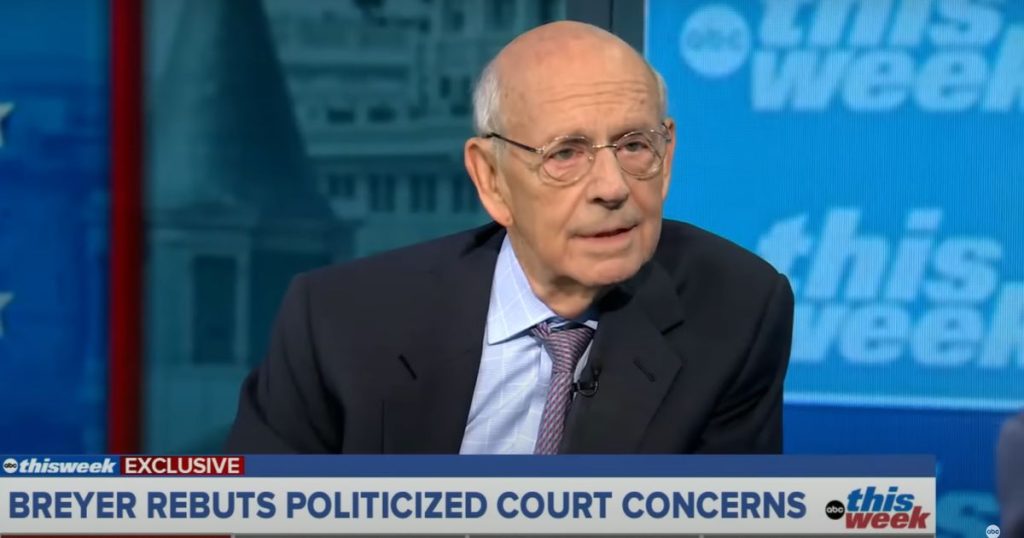Retired Supreme Court Justice Stephen Breyer stated that politics do not influence the decisions made by the high court justices, emphasizing that he has not seen political considerations in his 40 years as a judge. He noted that while public opinion may occasionally have an impact, it rarely sways justices in their deliberations. Breyer highlighted the importance of considering how their rulings will be received by the American public and taking care to explain their decisions in a way that is easily understandable.
When asked about the potential for unanimous decisions in cases involving former President Trump, Breyer rejected the idea of justices engaging in horse-trading. He emphasized the importance of each justice making decisions based on their own analysis and not being swayed by outside factors. Breyer referenced the late Justice Sandra O’Connor’s unwritten rules for the court, which prioritize individual analysis and the understanding that alliances can shift from case to case.
Regarding Justice Samuel Alito’s majority opinion in the Dobbs case, which led to the reversal of Roe v. Wade, Breyer questioned the assertion that justices should not consider how their decision may impact society or political response. He argued that justices have always taken into account potential consequences and reactions to their rulings, as it is a crucial aspect of interpreting the law and Constitution. Breyer highlighted the importance of assessing how Congress may react to a ruling and the broader societal implications of decisions.
Breyer pointed out the complexity of the Supreme Court as an institution, noting that it is distinct from the political dynamics in Congress. He discussed his experiences working with former Senate Judiciary Chair Ted Kennedy and how political considerations were pervasive in that setting, contrasting with the lack of such considerations on the court. Despite the challenges and nuances of decision-making, Breyer emphasized that justices ultimately aim to make decisions that will have a positive impact on people’s lives and reflect an understanding of the broader societal context.
In considering the potential for unanimous decisions in cases involving Trump and the 2024 election, Breyer highlighted the importance of each justice independently evaluating the merits of a case and expressing their own views. He stressed the unpredictability of alliances shifting from one case to another and the significance of each justice taking the time to thoroughly analyze each case before making a decision. Breyer reiterated the role of individual judgment and the need for justices to consider the long-term implications of their rulings on society and the political landscape.
Overall, Breyer’s comments underscored the complex and nuanced nature of the Supreme Court’s decision-making process. He emphasized the importance of justices making independent and carefully considered decisions based on the law and Constitution, rather than being influenced by political considerations or public opinion. Breyer’s insights shed light on the deliberative processes that guide the justices in interpreting the law and shaping the legal landscape for the benefit of all Americans.


